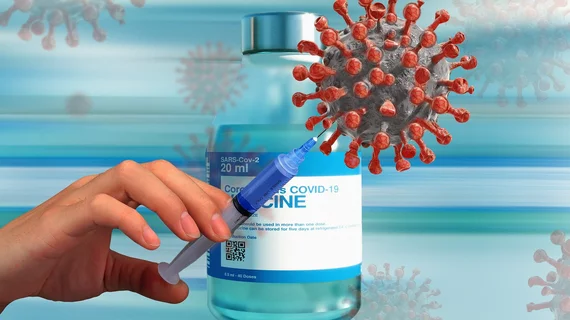Analysis of VA vaccine records finds benefits of Moderna over Pfizer
Using VA healthcare records, a group of researchers found that veterans who received a third dose of Moderna (mRNA-1273) had fewer documented instances of COVID-19 infections, symptomatic infections, hospitalizations, ICU admissions, and death compared with those who received a third dose of Pfizer-BioNTech (BNT162b2).
The findings, published in the journal Nature Microbiology, used veterans’ health records to conduct a retroactive analysis representing two emulated “trials.” The first trial covered veterans vaccinated during a period representing both the Delta and Omicron waves (October 2021 through February 2022), with the following results:
Trial 1 (Delta and Omicron waves): Excess number of events over 16 weeks per 10,000 people
Documented infections: 45.4 (95% CI: 19.4, 84.7)
Symptomatic infections: 3.7 (95% CI: 2.2, 14.1)
COVID-19 hospitalization: 10.6 (95% CI: 5.1, 19.7)
COVID-19 intensive care unit admission: 2.0 (−3.1, 6.3)
COVID-19 death: 0.2 (95% CI: −2.2, 4.0)
“While the differences in estimated risk for less severe outcomes between the two groups were small on the absolute scale, they may be meaningful when considering the population scale at which these vaccines are deployed,” the study’s authors wrote.
To better understand the impact of different variants on the vaccines’ effectiveness, the researchers also emulated a second trial using only data from veterans who were vaccinated in January and February 2022, when the Omicron variant was predominant, to examine documented COVID cases.
The results from this second trial showed an additional 63.2 documented COVID infections per 10,000 people for those who received the Pfizer-BioNTech vaccine.
To control for confounding factors, the researchers matched recipients of each vaccine 1:1 in different recorded risk categories. As a result, each group was similar in terms of demographics, comorbidities, time since completion of primary vaccination series, number of SARS-CoV-2 tests in the previous year and markers of healthcare utilization such as number of primary care visits and of influenza vaccinations in the previous five years.
While noting that both the Moderna and Pfizer BioNTech vaccines have high effectiveness and that “either vaccine is strongly recommended to any individual,” the researchers also examined one possible source of the lower risk ratios for those who received Moderna as a third dose: its higher mRNA content.
“The differential effectiveness we report in our study might be explained by the higher mRNA content of mRNA-1273 (50 μg for booster doses, 100 μg for third primary doses) compared with of BNT162b2 (30 μg for booster and third primary doses),” they wrote.
